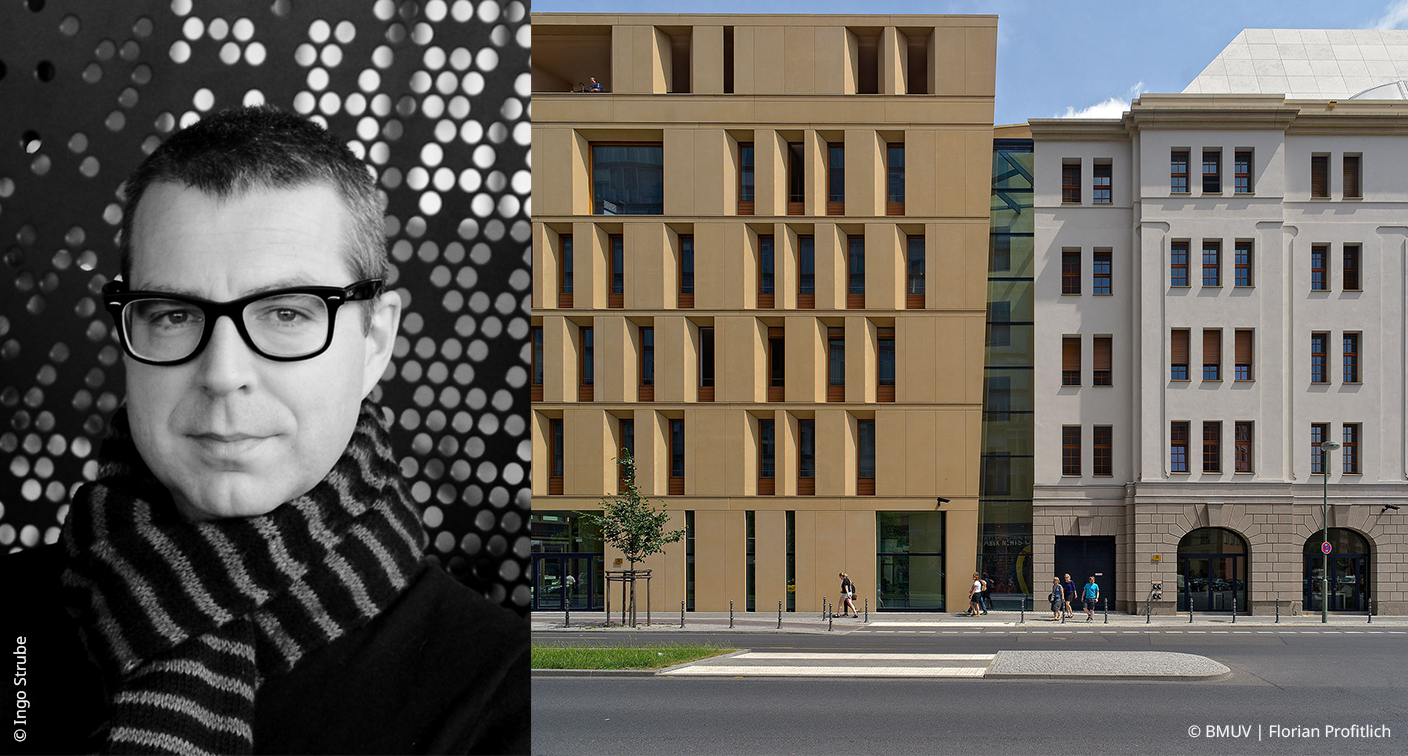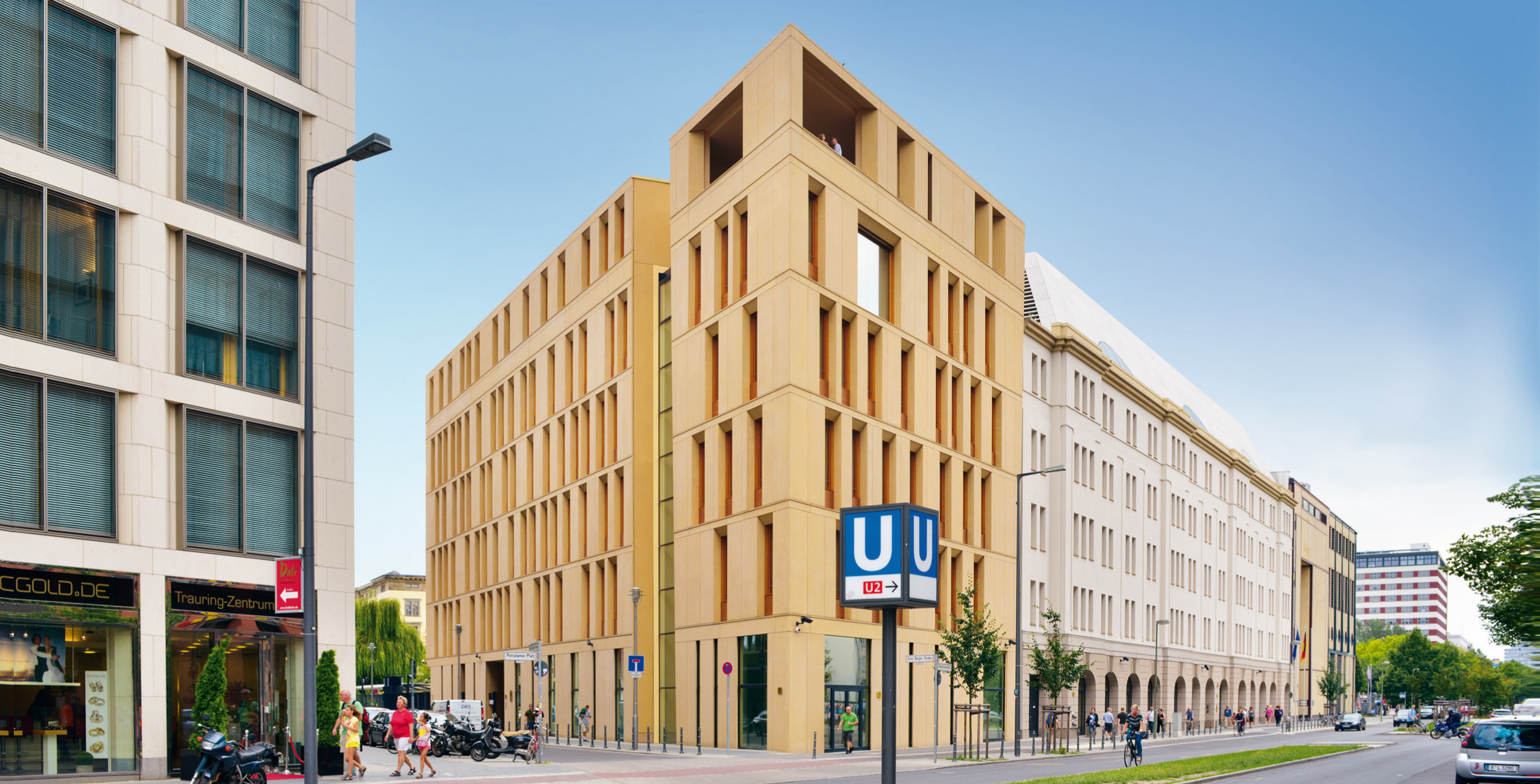
Together with the German Environment Agency (UBA), the Federal Ministry for the Environment (BMUV) is not only the initiator of the German Ecodesign Award, but also participates in the evaluation of the submissions by being a member of the jury. In addition, the award ceremony, which is the highlight of the competition, takes place every year in the atriums of the Federal Ministry for the Environment. Ingo Strube, who oversees the competition at the BMUV, tells us in a brief interview why it is important that the German Ecodesign Award exists.
Please introduce yourself and the role of the BMUV in general and in the German Ecodesign Award.
The Federal Ministry for the Environment is represented in the jury of the German Ecodesign Award at the level of our Parliamentary State Secretary Dr. Bettina Hoffmann and has overall political responsibility. I have been in charge of the award since 2017 in the department "Sustainable Consumption, Product-Related Environmental Protection". The annual award ceremony as part of a festive evening event in the atriums of the Ministry is undoubtedly one of the highlights in my calendar. I am a political scientist and came into contact with design and art at an early age in my parental home - so it is all the nicer that I can also deal with this topic professionally. My other areas of expertise at the Ministry include sustainable fashion and the German government's Blue Angel eco-label.
What was the motivation of the BMUV to create an award for sustainable design in cooperation with UBA and IDZ?
In 2012, the symbiosis of outstanding design and ecological benefits was not yet as widespread as it is today. Environmentally friendly products actually often corresponded to the clichés that are still common nowadays: somewhat green, woody, baggy, preferably in a "DIY look". We wanted to bring ecological design from the niche into the mainstream - with a voluntary instrument, where there was no legislative regulation yet. At the time, no one expected the German Ecodesign Award to develop into a real authority - the highest state award for ecological design.
How do you assess the importance of ecodesign for future developments in environmental policy?
The importance will - finally - increase strongly: In spring 2022, the European Commission presented the "Sustainable Products Initiative". It will replace the EU Ecodesign Directive, which already regulates so-called "energy consumption-relevant" products such as dishwashers, refrigerators, etc. in a binding manner throughout the EU internal market. Many people are familiar with the EU Ecodesign Directive through the "A - G" label on the product. This label will be seen on significantly more products at the point of sale in the near future. For example, the ecological design of textiles will be regulated by the middle of this decade. This is the "sharpest sword" of binding regulations. But that will not change anything in terms of aesthetics, impression and design, so the German Ecodesign Award will certainly not become obsolete.
Since 2021, the German Ecodesign Award has also been calling for entries internationally. Is this apparent in the submissions?
Internationalisation was the right step after 10 years. We have seen a continuous increase in the quality and ambition of the entries in German-speaking countries - and now there is fresh competition. I am pleased that, for example, with RePack from Finland, Farmfluencers from Italy or Wikkelhouse from the Netherlands, exciting innovations are joining us. However, even before the international call for entries, we had a good visibility in other European countries through the annual touring exhibition. Stations have been Vienna, Innsbruck, Wrocław and Eindhoven so far.

For more than 30 years, the Federal Ministry for the Environment, Nature Conservation, Nuclear Safety and Consumer Protection (BMUV) has been working to ensure that citizens are protected from environmental toxins and radiation, that raw materials are used wisely and sparingly, that climate protection is promoted and that the diversity of animal and plant species is preserved. In addition to its focus on environmental protection and nature conservation, the BMUV has also been responsible for consumer protection policy since the end of 2021 and is thus shaping another key future topic that is aimed at people and their living environment.